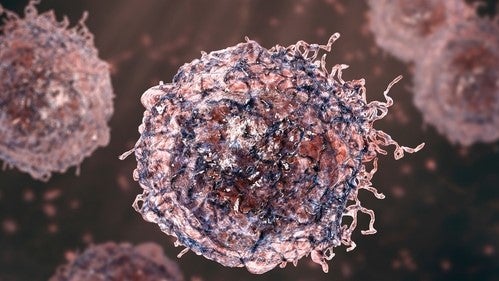Kymera Therapeutics shared clinical data demonstrating dose-dependent knockdown and no dose-limiting toxicities from its ongoing Phase I dose escalation clinical trials for its small molecule protein degrader medicines, KT-333 and KT-413.
The company announced data from its multicentre, open-label, dose-escalation Phase I study (NCT05225584) for KT-333, which evaluates its safety and efficacy in relapsed or refractory lymphomas, large granular lymphocytic leukaemia, and solid tumours.
Safety and efficacy data from multicentre, open-label, dose-escalation Phase I trial (NCT05233033) of KT-413 in relapsed and/or refractory B-cell non-Hodgkin’s lymphomas (NHL) was also reported.
According to GlobalData, there are more than 700 immuno-oncology products currently in Phases I–III of development in the eight major pharmaceutical markets, including the US and China. Approximately 34% of these pipeline drugs are being evaluated for solid tumours.
GlobalData is the parent company of Clinical Trials Arena.
KT-333 is a degrader of signal transducer and activator of transcription 3 (STAT3), a transcriptional regulator that has been linked to various cancers, and inflammatory and autoimmune diseases.
KT-413 is a heterobifunctional degrader targeting both interleukin-1 receptor-associated kinase 4 (IRAK4) and the immunomodulatory drug (IMiD) substrates, Ikaros and Aiolos.
Clinical trial data for KT-333 will be presented at the International Conference on Malignant Lymphoma (ICML) taking place between 13 and 17 June in Lugano, Switzerland.
KT-333 clinical data
As of the data cut-off of 1 May, 13 patients received a mean of five doses across the first four dose levels. Kymera reported dose-dependent plasma exposure and STAT3 degradation with a mean maximum reduction of up to 88% in peripheral blood mononuclear cells.
No dose-limiting toxicities (DLTs) have been observed in the study.
KY-413 NHL data
As of the data cut-off of 1 June, five patients have received the first four dose levels of KY-413. Kymera reported dose-dependent plasma exposure and targeted degradation of up to 70% IRAK4 was observed after a single dose.
As of the data cut-off, no DLTs or drug-related neutropenia were observed.















